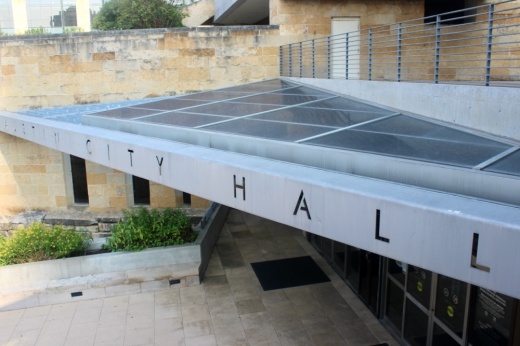The program outline was originally funded in the city's current budget and called for 85 families facing housing insecurity to each receive $1,000 monthly checks during a one-year pilot. Officials and staff said the money will come with no strings attached for recipients. The program's backers said the pilot will provide families on the brink of eviction or homelessness with support to improve their financial situations in whatever way they deem most effective.
“One thing we saw during the pandemic was the power of giving people that were in need some resources and then saying, ‘You know better than anybody else does what it is that your family needs,'" Mayor Steve Adler told the media in April.
Council signed off on the pilot concept in May with several requests related to program eligibility and tracking its successes or shortcomings. Now, staff said the program is nearly ready to go, and participating families will be selected over the coming weeks.
Additionally, the city announced St. David’s Foundation will be expanding the pilot by nearly 60% by providing funding for 50 additional families; the program will now allow 135 families to participate.
An Aug. 1 update from the Austin Equity Office detailed that families selected to participate must be residents of the city or Travis County earning 60% or less of the local median family income. As of 2022, the Austin-Round Rock region's median income for a family of four is $110,300. Families must also be facing eviction, at least two months behind on rent or exiting homelessness.
Equity office staff said eligible families will be identified and selected for the program through community-based organizations. The 135 families could be enrolled by the end of August with payments beginning in September.
The one-year trial will be followed by an analysis of the program digging into its effects on housing stability, personal finance and social capital, according to the city.
Past results
The guaranteed-income pilot will be managed by Oakland-based nonprofit UpTogether. The group previously conducted a similar income trial in the area funded through philanthropy. That program also featured the distribution of $1,000 monthly checks to more than 170 local families at risk of displacement with a goal of housing stabilization.
After running that pilot from March 2021 to March 2022, UpTogether released a report on the initiative's results before the new city-backed income program's launch. Based on surveys of participating families, UpTogether found all households ended up putting their monthly $1,000 toward housing payments—and that 6% moved from renting to homeownership over the course of the trial.
The majority of families also spent some of their extra dollars on other daily needs, such as food, clothing, utilities and transportation. And at least 40% spent their allocations on other bills or debt payments.
The nonprofit also said households largely used the additional money on reducing financial strains and achieving financial goals rather than unnecessary goods and services.
"This builds on prior research indicating that concerns about money mismanagement among cash transfer recipients, especially increased alcohol and tobacco consumption, are unfounded," UpTogether said. "The meta-analysis demonstrated that almost without exception, studies find either no significant impact or a significant negative impact of transfers on temptation goods."
Overall, the nonprofit said employment among members of participating families grew by nearly 20%; 73% saw increases in their annual incomes; and the number receiving government housing assistance was cut by half. Among the majority of households with children, UpTogether found they were generally able to spend more quality together in part thanks to the benefits of having additional money on hand.
"Cash enabled families to participate in meaningful activities that many people take for granted, such as vacationing with their children, buying gifts for holidays, and traveling to new places to build life experiences. Members noted improved child mental health due to stabilized housing, access to basic needs, and time families could spend together," UpTogether said.





